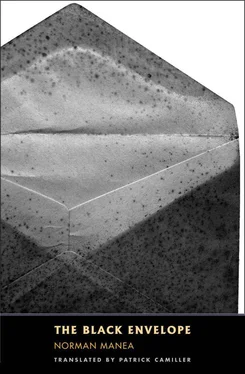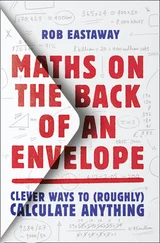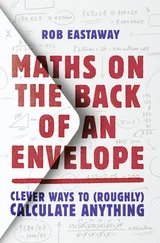Too late. The wheelchair had left the hall and crossed the pavement, with the glorious packages on the cripple’s lap.
Huge eyes, about to start crying. With two fingers the conjurer lifts two packages. He makes a present of two to his friend and then walks off, holding aloft in two fingers the cone-shaped bags in which the headless chickens are swinging. What the hell do I do with the booty now? All I wanted was the adventure, the challenge, the victory. Now I’ll have to carry the corpses to the photographer. What else can I do? Maybe the disabled photographer will remember the crime, maybe the ghost will grant me an audience.
He heard the murmur of the crowd behind him, ever fainter. He would have liked to go back and repeat the act of impertinence, to humiliate them even more, to arouse them, to tear them from the torpor of hours spent nicely waiting for their wretched portion of survival, the trophy of deaf-mute submission. I am absent, gentlemen, I would have shouted at them. Among you and yet far away, reinventing the nightmare of long ago in order to forget the one of today. To escape from boredom, gentlemen, to escape the hysteria of spring which humiliates and lashes us and makes us hysterical. I accept the provocation, I accept myself, that’s all. That’s all I am: I am this day I’ve called Friday. I’m bored, gentlemen, that’s all there is to it. The bags were waltzing, the hunter’s kill was waltzing. Burned air, two rustling plastic bags, two model corpses from the freezer of the everyday butcher. We’re together, look, all three of us, in the day’s great bag, facing the tram lines, ready to throw ourselves down and stop the fair. One moment, one raw, morbid fraction, one enormous, sublime chance to take control again, to bring the parody to a close. We cross the road at the traffic lights: the light blinds us, we cross carefully under the punishment of the pitiless sun, the raging sun of our boredom. Here is the flower shop. Here is the Scampolo store, closed for stock-taking. In front of the window, an old woman is straining to read the objects, the publicity. She hangs wearily, like a chicken in a gray, creased bag. She’s withered and bent, carefully wrapped in the standard bag.
We collect the bags, slowly swing the corpse in the pink fermented air of the poisoned day. The danger is lying in wait. The unseen claw is nearby, ready to get you in its clutches, but it has already veered off toward the others. The black wings have passed, we are still alive, more than this is not permitted us, nor do we wish for anything more. We just move ahead unconsciously as if standing still. Here is a cube, a house, a concrete step, a light switch, a filament, a bell; it’s Friday, like tomorrow, like a hundred years ago, another century, as if we never existed.
The door shyly opens a little. And behold, it opens wide.
In the frame, a woman. Watery eyes, hair gathered up at the back, dumpy body tilting to the left, small fleshy hands.
“Mrs. — Mrs. — ” stammered the stranger.
“I beg your pardon.”
“Oh, I’m sorry. I, er. . The Cu  a family lives here, doesn’t it? You are Mrs. Cu
a family lives here, doesn’t it? You are Mrs. Cu  a, am I right?”
a, am I right?”
“No, you’re not. Mrs. Cu  a isn’t at home. I’m a friend of Tori. Of Mrs. Cu
a isn’t at home. I’m a friend of Tori. Of Mrs. Cu  a, I mean. I am—”
a, I mean. I am—”
She uttered her name, but the air immediately scattered it beyond Tolea’s grasp.
“Aha. Well, actually I’d like to see Octavian. Tavi Cu  a.”
a.”
He managed to get a quarter of a step inside. The woman took fright, but she did not have the strength to stop him. Yes, the stranger was already well inside when he met the dark fixed eyes of a dog crouching by the hallstand.
“I’m an old friend of Mr. Octavian Cu  a; of Tavi. I’d very much like to see him. I’ve been looking everywhere. .”
a; of Tavi. I’d very much like to see him. I’ve been looking everywhere. .”
The woman had a gentle but cautious look in her eyes. She was dressed in a kind of blue work coat, like that of a laboratory assistant or housemaid or doctor: it could have been anyone’s.
Tolea sat down on a little stool he had already brought into the hall from the kitchen.
“You know, madam, just now they were giving out oranges. I didn’t need any, in fact. But I saw the long line, with hundreds of wretched-looking men and women, and I thought, Let’s get some, too.”
He was looking at the two bags with headless chickens that he had put down by the stool.
“Since this is where I’ve landed, I may as well get some, too. Oranges, as it happens. .” —and he pointed to the bags with chickens lying by his cream-colored, porous shoes. The woman remained silent. Dilated eyes, gripping the door handle.
“So I joined the line. It must have been some twenty years ago. I had joined the line: it was in Lisbon or Salonica, I don’t remember anymore. I was — um, how old? — twenty, thirty, I don’t remember. So Siena or Salonica or Seville, I don’t remember. I didn’t need any, but I joined the line for oranges, just like that. In front of me a lovely young woman was lost in her fiancé’s eyes. We were moving forward very slowly. At a certain moment a woman in front of us detached herself from the line. Elegant, with hair neatly done, a fine Oriental profile. Well then, when I was skiing a week ago in Switzerland, I also joined a line to go down the run. I’m not all that keen on fruit, but you know how it is: I follow the lead of others. I’m easily influenced: as soon as I see a line I join in as well. So, as I was saying, a fine elegant lady who’s made up her mind to protest. Won’t you come with me? she asked the young fiancé, who didn’t say a word in reply. The woman was right: something had to be done or we probably wouldn’t get anything. The boxes were nearly empty. The young fiancé smiled mockingly. Why did she pick me as the most representing, he whispered nervously to his fiancée. The girl looked up into his big eyes in total admiration. Most representative, she gently corrected him. Total admiration. But she still corrected him, the sweet thing. So there we were, inching forward, just. The line behind us had kept growing, and now the rumpus was beginning.”
The woman fearfully leaned on the kitchen door. Holding the handle. Speechless, completely melted away.
“As I said, madam, we were just inching forward. I was a child, that’s what I’m like. Maybe I was fifteen, twenty-five, thirty-five, but no more, certainly no more than thirty-five. A fat saleswoman appeared and took a box of oranges for the staff of the shop. A commotion started up. Then a saleswoman appeared from across the street, from the electrical shop over there, and also took a bagful just as a customer was asking for fifteen kilograms to be weighed out for him. Do you hear? Fifteen kilos! That triggered the explosion: the shop manageress appeared and there was one hell of a row. So the inching forward resumed. People were yelling, Don’t give anyone more than two kilos in future, so there’ll be enough to go around. The saleswomen, all very nice and obliging, calmly got on with their job. Everyone got what they asked for up to six kilos. That was the manageress’s decision. There was also a drunk there. Good job it’s warm, muttered the drunk. Because you know what it’s been like the last few years, madam. We only have to hear the word winter and we shudder with fright. It’s as if we were living in caves, madam: hard winter months with no heating, no hot water. A nightmare, as you know. The drunk was right: a good job we were inside there, you know, at the Corfu café. We were inside and it was warm, we didn’t feel the winter, the drunk was right. So forward, inch by inch. Lovely, jolly girls weighing at the scales.”
Читать дальше

 a family lives here, doesn’t it? You are Mrs. Cu
a family lives here, doesn’t it? You are Mrs. Cu 










